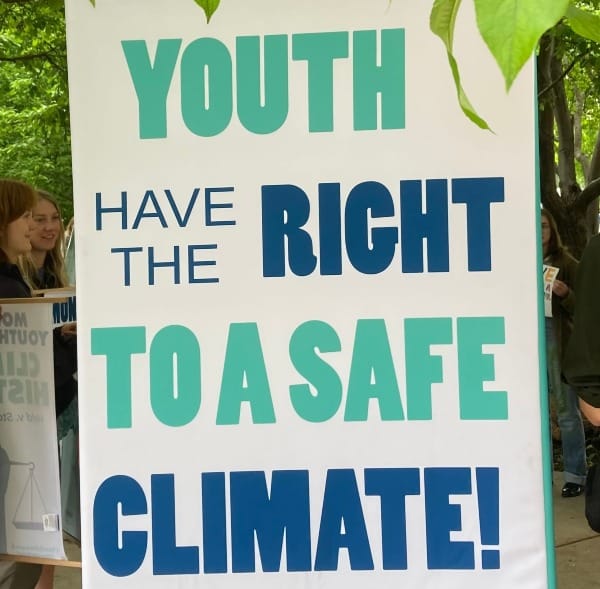Baltimore And Its Backers Brief U.S. Supreme Court, Push Back Against Oil Companies' Arguments

The city of Baltimore and its supporters in litigation against the fossil fuel industry over climate damages are pushing back against industry arguments in oil companies’ appeal before the Supreme Court. The Supreme Court will hear the case on January 19, 2021.
In recent briefs submitted in December to the Court, Baltimore and its backers, or amici, argue that the oil companies like Chevron, BP, and ExxonMobil are exploiting a narrow statutory provision that allows for federal appeals courts to review federal court decisions – called remand orders – sending a case back to its state court origins. Baltimore and a coalition of state and local government groups specifically call out this exploitation as “gamesmanship” in their briefs.
The issue before the Supreme Court is technically a very wonky one regarding a question of federal civil procedure, namely the scope of appeals courts’ review of remand orders as outlined in a statutory provision (USC § 1447d). However, the oil companies being sued by Baltimore – and the companies’ backers or amici – are urging the Supreme Court to issue a sweeping decision beyond this specific question that would essentially determine that all climate-related lawsuits necessarily belong in federal courts where they must then be dismissed. Baltimore’s climate lawsuit, and others like it brought by states and municipalities against fossil fuel companies, have been tied up in procedural wrangling over this federal vs. state court issue.
This wrangling has caused considerable delay in the litigation, which seeks to hold fossil fuel companies liable for alleged deception and disinformation campaigns on the dangers of their products to the climate system.
In a climate liability case similar to Baltimore’s brought by several Colorado municipalities, for example, the battle over federal vs. state court jurisdiction has dragged out for a year and half already. The Colorado communities - the city and county of Boulder and San Miguel County – are suing Exxon and Suncor entities to hold them accountable for climate disinformation and damage. These communities submitted a brief backing Baltimore. Their brief notes that the oil company defendants in their lawsuit have recently filed a petition to the Supreme Court (filed December 8, 2020) seeking the same appeal and relief that the companies seek in the Baltimore case. The Colorado brief also says that the companies’ appeal is disingenuous because their end game is to avoid accountability in court altogether; as the brief puts it, the companies are “setting up a game of three-card Monte, where they simply can never be sued.”
Another amicus or supporting brief backing Baltimore came from 20 attorneys general (all Democrats) from 19 states plus the District of Columbia. A handful of these AGs have brought lawsuits of their own against the oil companies over the alleged deception and fraudulent conduct, all under state law claims such as consumer protection statutes that have no relevance to federal law or federal interests. “Like Baltimore in this case, States have sought to enforce their own laws by bringing lawsuits under state law in state courts against fossil-fuel companies for their decades-long campaigns to conceal their knowledge of climate change and the central role their products play in causing climate change,” the AGs note in their brief.
The states’ brief also explains how this Supreme Court appeal and procedural wrangling in climate cases needlessly delays the litigation. “These delays defer desperately needed relief,” the brief argues. “Baltimore, Rhode Island, and similar plaintiffs brought these actions at the time that they did because state and local governments are incurring costs from climate change effects now…But defendants have been able to delay any reckoning by endlessly litigating threshold removal questions. It should not take three years to determine which court should hear a case.”
The attorneys general supporting Baltimore in this appeal represent Rhode Island, New York, California, Connecticut, Delaware, DC, Hawaii, Illinois, Maine, Massachusetts, Michigan, Minnesota, Nevada, New Jersey, New Mexico, North Carolina, Oregon, Vermont, Virginia, and Washington. Another group of states with Republican attorneys general are backing the oil companies.
The U.S. federal government under the outgoing Trump administration is also supporting the companies, as are a handful of fossil fuel industry trade associations and allies like the American Petroleum Institute, the National Association of Manufacturers, and the U.S. Chamber of Commerce.
But one brief backing Baltimore, submitted by six U.S. Senators (all Democrats), calls out these friends of Big Oil. As the senators explain, these groups are tied to fossil fuel funding and interests and have helped block policy action on climate; yet these groups and the oil companies aim to deprive communities of pursing climate-related actions in courts in favor of political forums where they have undue influence. “They ultimately wish to steer all such [climate] matters into the executive and legislative branches, where they have maintained a decades-long political blockade,” the senators write in their brief.
The six senators backing Baltimore include Ben Cardin and Chris Van Hollen of Maryland; Elizabeth Warren and Ed Markey of Massachusetts; and Sheldon Whitehouse of Rhode Island and Richard Blumenthal of Connecticut. “We see this gambit, joined by fossil fuel-connected amici, as part of a continuing effort to block progress on addressing climate change,” they argue.
Additional amici briefs backing Baltimore came from a group of civil procedure and federal court scholars, from a coalition of state and local government organizations such as the U.S. Conference of Mayors and the Council of State Governments, and from environmental groups Chesapeake Bay Foundation and the Natural Resources Defense Council.
The Supreme Court has set oral argument for January 19, 2021. A ruling in favor of the oil companies – a real possibility given the conservative majority of the court – could either reopen the federal appeals courts’ review of remand orders in Baltimore’s case (and likely a few other climate cases like it), or could go further and determine that all climate liability litigation must be brought in federal courts under federal common law, which is the outcome that the oil companies and their allies most desire. A previous Supreme Court decision from a decade ago set a precedent that climate change lawsuits brought under federal common law must be thrown out.


